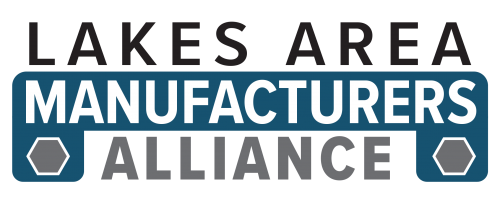Description of job: Inspect, test, sort, sample, or weigh non-agricultural raw materials or processed, machined, fabricated, or assembled parts or products for defects, wear, and deviations from specifications. May use precision measuring instruments and complex test equipment.
Related Careers: Quality Technician, Quality Auditor, Quality Assurance Auditor, Quality Assurance Inspector, Quality Auditor, Quality Control Supervisor, Quality Control Technician, Inspector
Sources: Minnesota CAREERwise & CareerOneStop
Typical Work Tasks
People who work in this career often:
- Read work orders or other instructions to determine product specifications or materials requirements.
- Review blueprints or other instructions to determine operational methods or sequences.
- Analyze test results.
- Compare physical characteristics of materials or products to specifications or standards.
- Inspect sustainable energy production facilities or equipment.
- Test chemical or physical characteristics of materials or products.
- Notify others of equipment repair or maintenance needs.
- Mark products, workpieces, or equipment with identifying information.
- Evaluate quality of materials or products.
- Monitor equipment operation to ensure proper functioning.
Typical Working Conditions
- Wearing common protective or safety equipment such as safety shoes, glasses, gloves, hearing protection, hard hats, or life jackets.
- The importance of being accurate or exact.
- Meeting strict deadlines.
- Frequent contact with others.
- Using your hands to handle, control, or feel objects, tools, or controls.
- Working with a group or team.
- Freedom to make decisions without supervision.
- Exposure to sounds or noise levels that are distracting or uncomfortable.
- Responsibility for outcomes and results.
- Working indoors in environmentally controlled conditions.
Tools & Technology used by Quality Inspectors
Source: Minnesota CAREERwise
Most Important Skills for Quality Inspectors
- Thinking Critically—Using logic and reasoning to identify the strengths and weaknesses of alternative solutions, conclusions or approaches to problems.
- Controlling Quality—Conducting tests and inspections of products, services, or processes to evaluate quality or performance.
- Listening—Giving full attention to what other people are saying, taking time to understand the points being made, asking questions as appropriate, and not interrupting at inappropriate times.
- Monitoring Equipment—Watching gauges, dials, or other indicators to make sure a machine is working properly.
- Monitoring Performance—Monitoring/Assessing performance of yourself, other individuals, or organizations to make improvements or take corrective action.
- Reading—Understanding written sentences and paragraphs in work related documents.
- Coordinating with Others—Adjusting actions in relation to others’ actions.
- Making Decisions—Considering the relative costs and benefits of potential actions to choose the most appropriate one.
- Speaking—Talking to others to convey information effectively.
- Writing—Communicating effectively in writing as appropriate for the needs of the audience.
Most Important Knowledge Areas for Quality Inspectors
- Production and Processing—Knowledge of raw materials, production processes, quality control, costs, and other techniques for maximizing the effective manufacture and distribution of goods.
- Mathematics—Knowledge of arithmetic, algebra, geometry, calculus, statistics, and their applications.
- English Language—Knowledge of the structure and content of the English language including the meaning and spelling of words, rules of composition, and grammar.
- Education and Training—Knowledge of principles and methods for curriculum and training design, teaching and instruction for individuals and groups, and the measurement of training effects.
- Computers and Electronics—Knowledge of circuit boards, processors, chips, electronic equipment, and computer hardware and software, including applications and programming.
- Customer and Personal Service—Knowledge of principles and processes for providing customer and personal services. This includes customer needs assessment, meeting quality standards for services, and evaluation of customer satisfaction.
- Mechanical—Knowledge of machines and tools, including their designs, uses, repair, and maintenance.
- Clerical—Knowledge of administrative and clerical procedures and systems such as word processing, managing files and records, stenography and transcription, designing forms, and other office procedures and terminology.
- Design—Knowledge of design techniques, tools, and principles involved in production of precision technical plans, blueprints, drawings, and models.
- Engineering and Technology—Knowledge of the practical application of engineering science and technology. This includes applying principles, techniques, procedures, and equipment to the design and production of various goods and services.
Interests
Different careers may be a good fit for your personality or interests. This career is:
- Conventional—Conventional occupations frequently involve following set procedures and routines. These occupations can include working with data and details more than with ideas. Usually there is a clear line of authority to follow.
- Realistic—Realistic occupations frequently involve work activities that include practical, hands-on problems and solutions. They often deal with plants, animals, and real-world materials like wood, tools, and machinery. Many of the occupations require working outside, and do not involve a lot of paperwork or working closely with others.
Source: Minnesota CAREERwise
| Wages Per Hour For Quality Inspectors (MN) | ||
Low$20.21 |
Median$23.89 |
High$29.03 |
Low indicates 25% of workers earn less and 75% earn more. Median indicates 50% of workers earn less and 50% earn more. High indicates 75% of workers earn less and 25% earn more.
Demand
There will be be a need for about 9,476 new Inspectors, Testers, Sorters, Samplers, and Weighers to meet market demand between 2018-2028. This includes the demand due to replacement (workers leaving the occupation or retiring) as well as growth
Source: Minnesota CAREERwise
This career at least a high school degree, and usually provides on-the-job training. Some professionals seek an Associates degree.
View the local post-secondary education options from our partners: Central Lakes College & MSTATE.
Helpful High School Courses
Examples of helpful classes that help you prepare for this career:
- Applied Math
- Blueprint Reading
- Computer Applications
- Drafting
- Electronics
- Geometry
- Industrial Technology
- Introduction to Business
- Physics
- Pre-Calculus
- Technical Writing
- Trigonometry
Source: Minnesota CAREERwise
Industry Partners



Visit Minnesota Manufactured for more information about Quality Inspection careers, as well as links to education and training programs in Minnesota.
